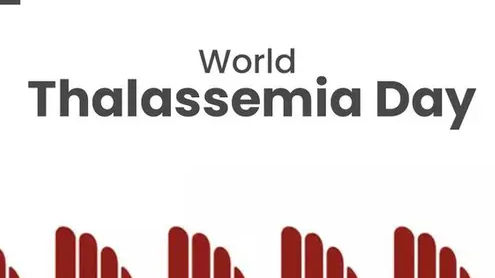World Thalassemia Day is celebrated every year on May 8. The day is celebrated to honour the struggles of thalassemia patients and to raise awareness of the disease and its symptoms.
This day is also marked globally to recognise the efforts of doctors, scientists, and medical staff who work persistently to improve the lives of individuals suffering from medical illnesses and to introduce new breakthroughs into the profession.
Also Read|Study: Drinking coffee may lower risk of heart disease and premature death
History
Thalassemia International Federation (TIF) established May 8 as International Thalassemia Day in 1994.
It was founded by Panos Englezos, the president of TIF in loving memory of his son George Englezos, and all thalassemia sufferers who fought the disease and bore the social stigma connected with it, setting an example for others.
Also Read|Study finds new predictors of breast cancer relapse
Significance
Thalassemia is a genetic blood condition that is passed down from parents to their children. People with the condition have fewer red blood cells and haemoglobin in their systems.
Since thalassemia is likely to be passed down from generation to generation, global campaigns try to educate young people about the importance of seeking medical counsel before having a child. The day also attempts to dispel myths and misconceptions about the disease.
According to the National Health Ministry of India’s website, between 10,000 to 15,000 newborns in India each year suffer from thalassemia Major. This figure grows to between 300,000 and 500,000 youngsters worldwide. Beta Thalassemia affects around 67,000 people in India.
The World Thalassemia Day event strives to minimise the number of thalassemia children born. Some people are thalassemia silent carriers, and both can pass the disease on to their children. As a result, adequate screening is required to find carriers. The event informs the public about these topics.
Celebration
The TIF organises many activities each year to raise awareness about medical diseases. The purpose of these activities is to start conversations around the year’s theme.
Also Read|Study: Boys with autism spectrum disorder more likely to self-harm
Theme
This year’s theme is “Be Aware. Share. Care: Working with the global community as one to improve thalassemia knowledge.’’
The theme is to motivate everyone to make a personal contribution to the fight against thalassaemia by sharing vital information and knowledge.







